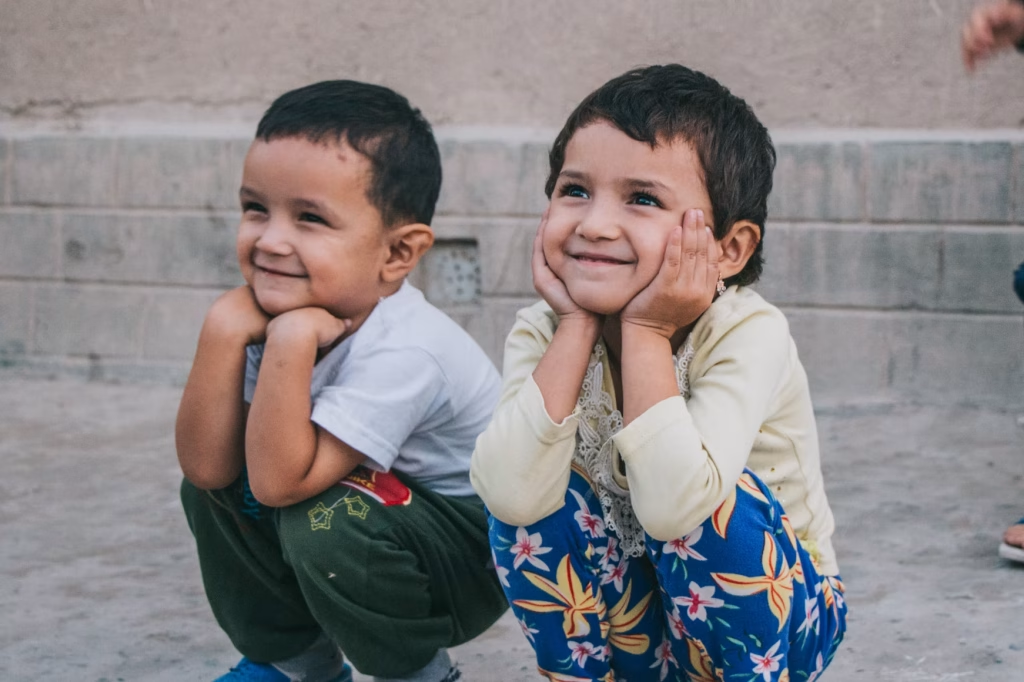
Once upon a time, kids played center stage in family photo albums—kept safe on a shelf or shared only with relatives. Today, some children star in meticulously curated content viewed by millions of strangers.
Whether it’s a toddler’s meltdown captured on TikTok or daily vlogs of family life, influencer parents are building full‑time brands around their children. On the surface, it’s charming and relatable. Underneath, serious questions demand thoughtful reflection: Are these kids being celebrated or exploited?
Some Kids Are Working—Without a Paycheck
One of the biggest concerns with influencer parenting is the slide into economic exploitation. Parents use children’s appearances to generate income through sponsored posts, affiliate deals, and ad revenue. If earnings aren’t saved or used for the child’s benefit, it crosses an ethical line—especially since kids can’t give informed consent.
A University of Chicago Law School paper warns that this practice is “a modern form of child labor carried out on social media” and calls for updated regulations to protect minors.
Constant Sharing Can Harm Emotional Growth
Posting milestones, tantrums, or private moments feels harmless until cameras are always around. Children who grow up on camera may experience anxiety or distorted self‑esteem once they realize how widely their lives have been broadcast.
Research summarized by Creativity Unleashed shows that continual exposure can teach kids to equate attention with approval, putting them at higher risk for mental‑health struggles later in life.
Privacy Gets Trampled in the Race for Views
Even well‑meaning parents overlook how revealing online content can be. School emblems on uniforms, street signs in the background, or casual references to daily routines create a digital breadcrumb trail for strangers.
Once a child’s data is online, it is effectively permanent and can be misused for bullying, identity theft, or worse. Children have no practical way to reclaim that privacy in the future.
There’s No Safety Net in This Growing Industry
Children in film or television benefit from labor laws that regulate hours, income, and working conditions. Kidfluencers, by contrast, operate in a largely unregulated space. Without formal oversight, children can be overworked or underpaid—all from their own living rooms. The blurred line between playtime and labor makes it hard to enforce safeguards.
Online Fame Today, Real‑Life Struggles Tomorrow
Long‑term effects of growing up online are still being studied, but early evidence raises red flags. Kids who become family “brands” may skip school for filming, crave online validation, or struggle to form offline friendships. If their popularity funds the household, pressure to perform can overshadow education and personal growth.

Parents Hold the Remote—And the Responsibility
Kids can’t give full consent to internet fame. Only parents can decide what’s truly in a child’s best interest. Before posting, influencer parents might ask: Does my child understand the audience? Would I still share this if they were a teenager? What will this content mean five years from now?
Let’s Put Kids Before Clicks
Emerging laws, platform tweaks, and advocacy efforts all point to one principle: a child’s right to safety, privacy, and fair compensation outweighs any algorithmic boost. Until regulations are airtight, the most effective protector is still a parent who chooses the long‑term well‑being of their kid over the next viral view.
Sharing family life online can foster community, but never at the expense of a child’s privacy or well‑being. Influencer parents have a chance to model responsible storytelling—valuing children as people, not props. Because ultimately, it shouldn’t be about views; it should be about values.
Have you found a healthy balance when sharing your family life online? Tell us about it in the comments.
Read More
- 3 Essential Tips for Finding the Best Family Neighborhood to Raise Kids
- Internet Safety for Children: Protection from Inappropriate Content

Samantha Warren is a holistic marketing strategist with 8+ years of experience partnering with startups, Fortune 500 companies, and everything in between. With an entrepreneurial mindset, she excels at shaping brand narratives through data-driven, creative content. When she’s not working, Samantha loves to travel and draws inspiration from her trips to Thailand, Spain, Costa Rica, and beyond.

